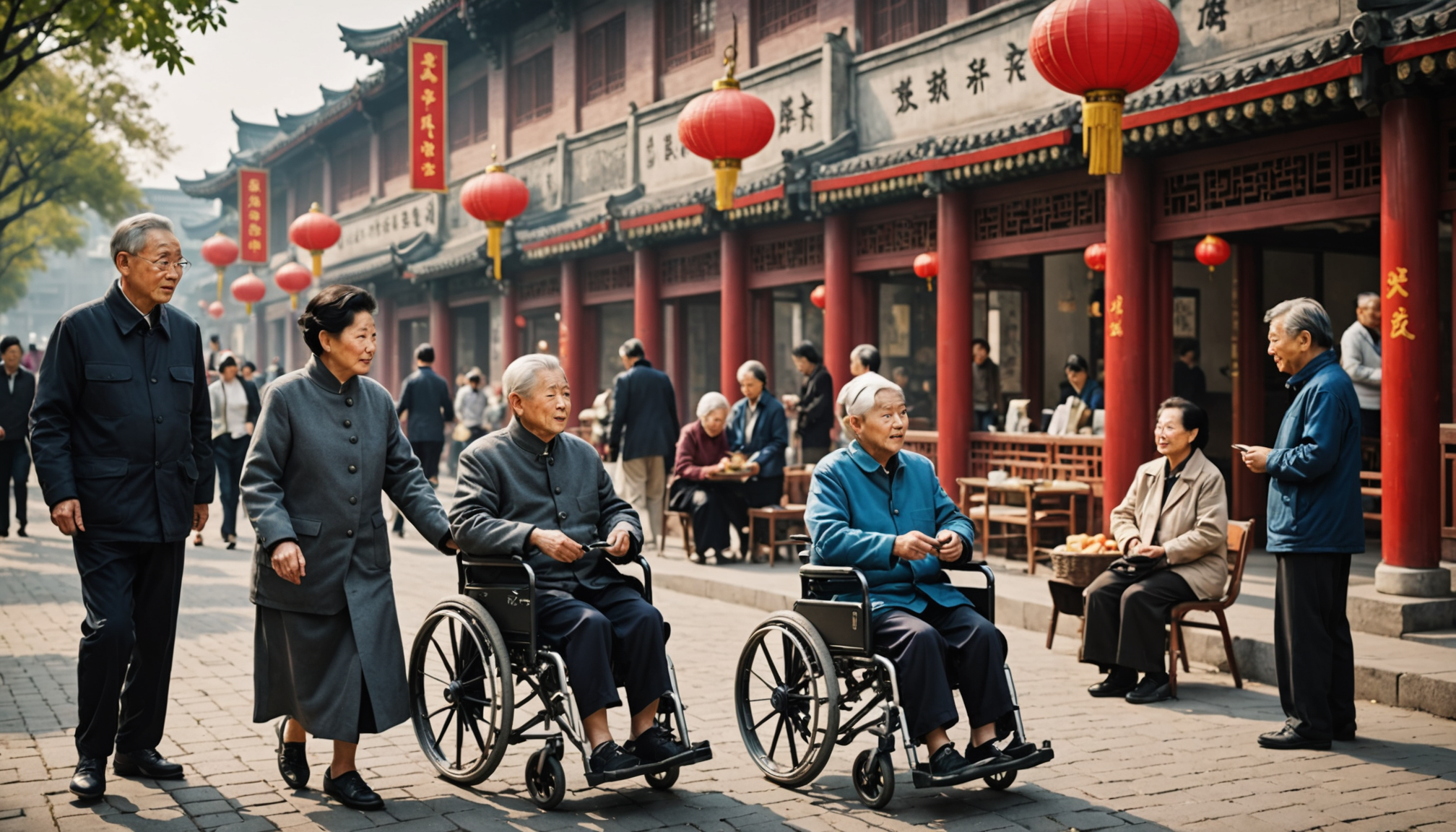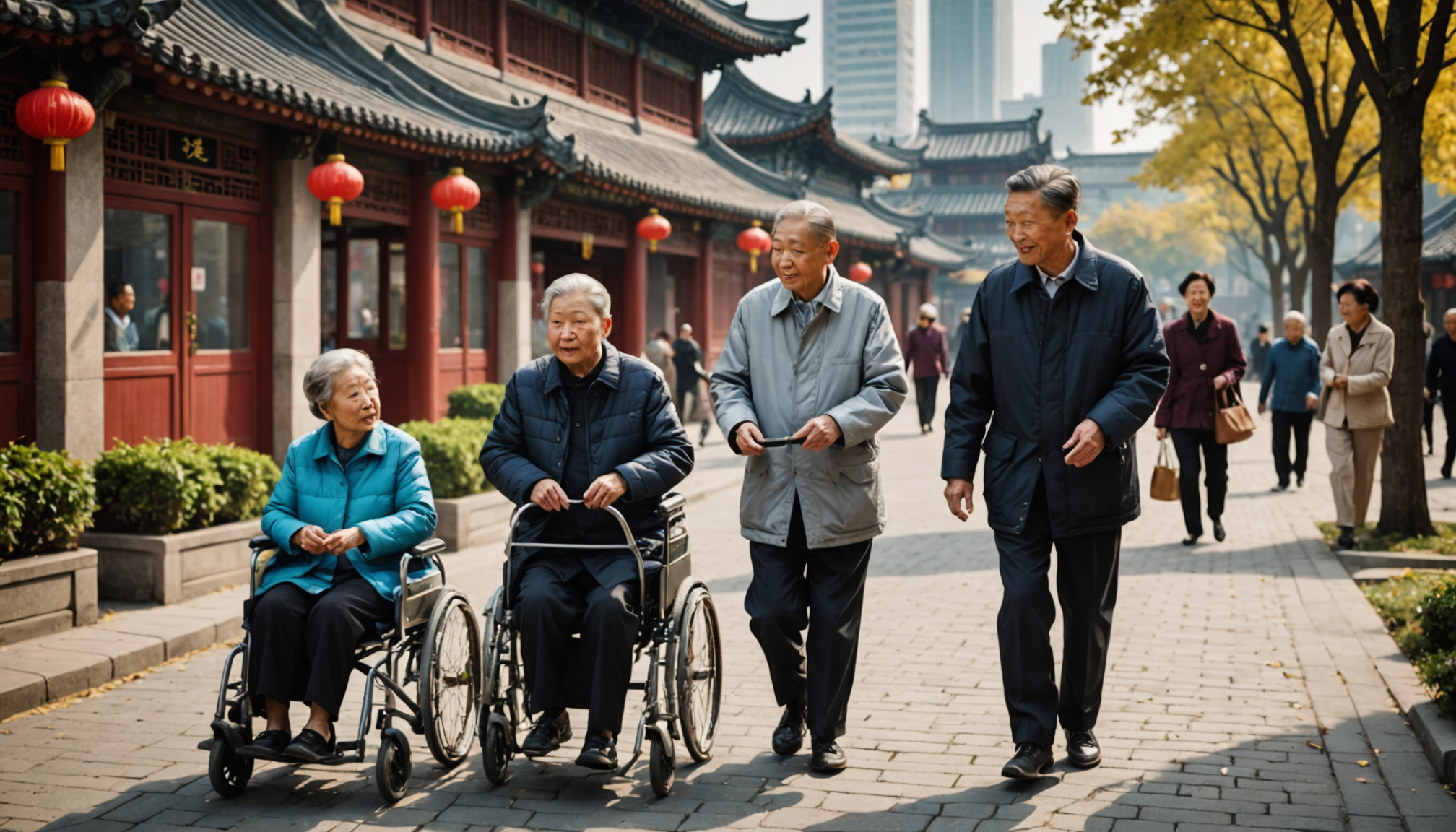In a context where the Chinese population ages quickly, China engages in a necessary transformation to adapt to this demographic change. The growth of a silver economy is taking shape, aiming to meet the expectations and needs of a constantly growing generation of seniors. With the number of people aged 60 and over expected to reach impressive numbers in the coming decades, the country is focusing on developing initiatives and services to improve the quality of life of seniors. This quest for a more inclusive and dynamic society marks a key stage in the Chinese *economic model*.
Faced with an aging population, China implements solutions to adapt and take advantage of the silver economy. By 2030, the number of Chinese people over 60 is expected to increase significantly, bringing challenges and opportunities. The proportion of people aged 65 and over has well exceeded 14%, signifying a major demographic change.
To respond to this development, the country is developing policies aimed at improving the well-being of seniors while promoting the development of commercial initiatives adapted to their needs. Investments in infrastructure, health services and adapted technologies are essential to transform this challenge into an economic asset. There silver economy thus becomes a strategic issue, promising to stimulate an innovative dynamic and enrich society while ensuring adequate support for this coming generation.

Table des matières
Togglechina and its adaptation to the aging population
With a demographic future taking shape in alarming colors, China must face the challenge of aging population. By 2030, the number of Chinese over 60 is expected to double to a dizzying figure, representing a quarter of the population^. The need to adapt the economy and services to the specific needs of these new age groups is now vital. The famous silver economy then emerges as an innovative response to face this period of transition.
the emergence of the silver economy
The notion of “silver economy” refers to efforts put in place to develop markets and services specifically aimed at seniors. There silver economy is attracting more and more attention thanks to its economic potential and its key role in supporting the elderly. Many private and public actors are mobilizing to create an improved framework; thus, entrepreneurs are focusing their efforts on innovative solutions, well-being products and support services adapted to this growing population, thus strengthening their autonomy and their quality of life.
growing needs and challenges
Despite these advances, China faces critical challenges. There labor shortage in the years to come risks weighing on the provision of essential services for seniors. In response, several government initiatives are emerging, aimed at encouraging older people to remain active in the labor market, even in a voluntary capacity. This will not be enough on its own, and in-depth reflections on the financing of personal services, the creation of suitable housing and the improvement of quality of care are imperative to guarantee a peaceful and inclusive future. Companies must work in synergy to meet these new, constantly expanding needs.
China adjusts to meet the needs of an aging population in a silver economy
There aging population of China represents a considerable challenge, but also an opportunity for economic transformation. With a growing proportion of elderly people, the country is faced with an urgent need to adapt its infrastructure and services in order to guarantee a decent standard of living for its seniors. The establishment of a silver economy becomes crucial to meet these specific needs, ranging from improving geriatric care to creating adapted products.
With this in mind, the Chinese government has initiated policies and programs aimed at strengthening the social security system. This includes incentives for companies to invest in services for the elderly and the development of specific training for workers in this sector. By integrating innovation and technology, solutions such as AgeTech are proving essential to improve the quality of life of seniors, by offering them easy access to adapted care and connected health services.
The market for consumer and wellness products for seniors is booming. Companies are emerging, offering adapted food, health equipment, as well as intergenerational housing solutions. This economic dynamism is also accompanied by empowerment of seniors, encouraging them to remain active within society by participating in volunteer programs and adapted jobs.
In short, China’s response to its aging population is part of a global project, embracing the idea of a silver economy which not only improves the well-being of individuals but also contributes to the prosperity of the nation as a whole. The transition to this new reality is underway, paving the way towards a more inclusive and sustainable future.







